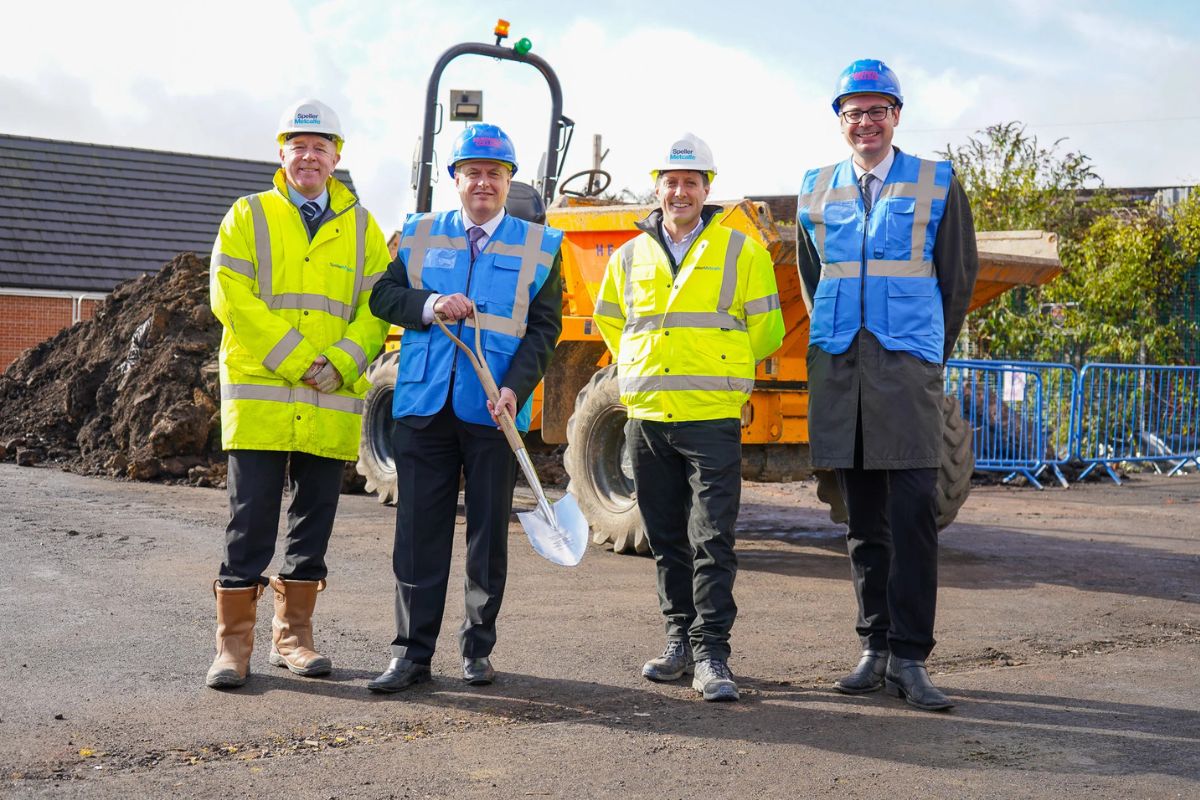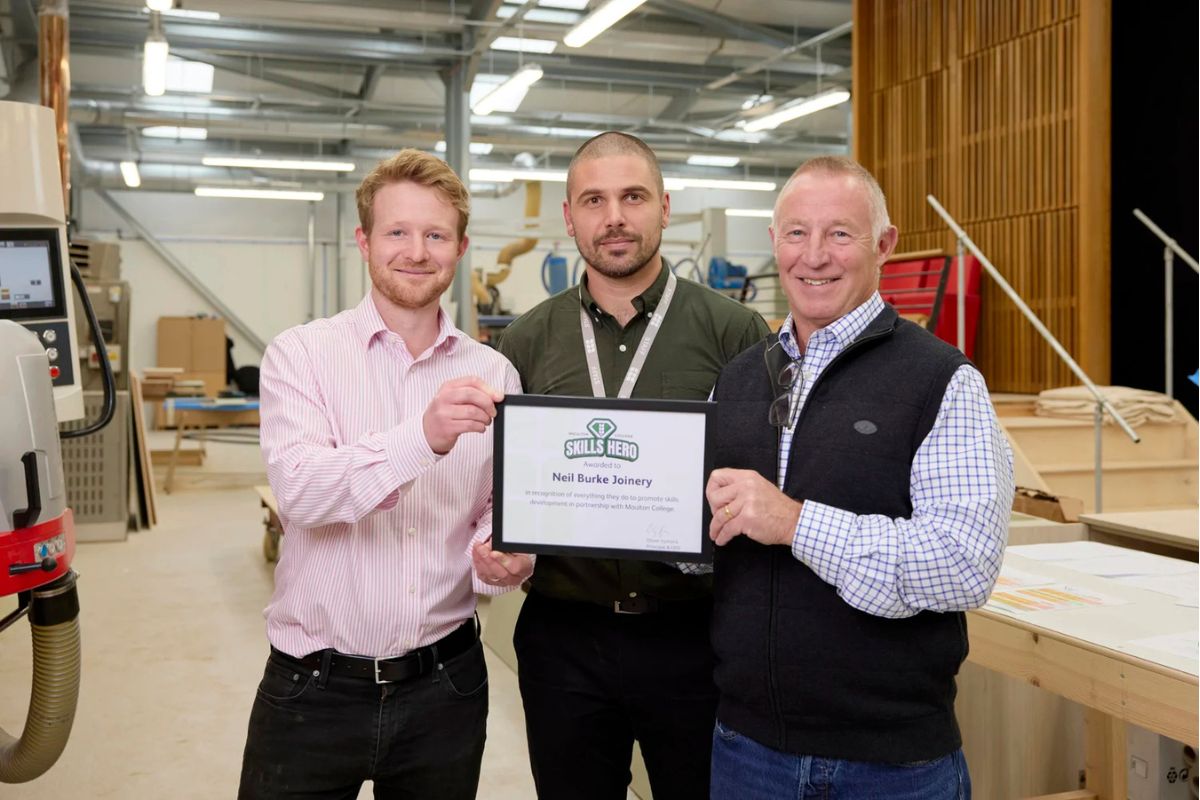Engaging and inspiring young people is key to tackling the looming skills shortage in rail construction

There is an undeniable skills shortage across the construction sector that’s been growing for decades and is felt across all four of the main types of construction in the UK: residential, commercial, specialist industry and infrastructure and heavy construction.
A lack of engagement with young people and an increasingly ageing workforce has a huge part to play in the current talent crisis. The median age of a construction industry worker is 43 years old, while workers younger than the age of 25 make up just 9% of the industry.* This, coupled with Brexit causing limited access to skilled foreign workers, means a lack of qualified labour is becoming a huge national problem.
An area that has been particularly hard hit is rail construction, which has historically failed to attract applicants to its discipline. New research by City & Guilds and the National Skills Academy for Rail (NSAR) has painted a stark picture for the future of the rail workforce, with skill shortages set to escalate significantly as up to 120,000 additional people will be required in the sector over the next five to ten years.**
The rail industry hasn’t always been considered an exciting and viable career choice for young people despite the attractive packages on offer for candidates. The only way to counteract the looming talent crisis is to change the narrative and engage young people to create a more youthful workforce that is fit for the future.
Changing perceptions
One of the biggest hurdles in bringing younger people into construction is the perception of the industry, with typical routes into construction – such as apprenticeships and training placements – seemingly losing favour with Gen-Z workers. However, there are increasingly more opportunities within the industry post-graduation, with a national recruitment drive currently ongoing for all levels across the sector.
With this, rail businesses and organisations need to rethink their recruitment approaches to ensure they are communicating with the next generation of workers, which includes raising awareness for all routes into the industry, including post-graduate ones. Partnerships with schools, colleges, universities and local organisations are a great way to get in front of young people, but this is just the beginning of the journey.
From here, rail industry professionals must articulate the many benefits that the sector boasts, including the longevity of a rail career, financial security, travel opportunities and the sheer breadth of roles available.
Furthermore, industry professionals must collaborate and take a joined-up approach to urgently gear up the industry’s skills and talent pipelines.
Opportunities within the rail industry are rarely spoken about and are often overlooked, so it’s easy to see why young people may be misinformed. Emphasizing the different roles, including operational, engineering, communications, and environmental jobs, is the best way to encourage young people to consider the industry as an option. Rail is not all about driving trains and building train tracks but is one of the fastest-growing networks in Europe and is booming with exciting career prospects.
Investing in people
Without question, companies need to invest in people early on in their careers to demonstrate a commitment to nurturing emerging talent in the sector. Offering apprenticeships, traineeships and graduate schemes are a great way to entice applicants to certain companies or roles, while ongoing professional development plans will encourage the retention of skilled workers.
The Association of Employment and Learning Providers have reported that 60% of employers stopped recruiting apprenticeships during the pandemic.*** However, rail apprenticeships come with an abundance of benefits for both the company and the apprentice, the main one being that they will help solve the drastic skill shortages.
Companies should also look for less traditional routes to finding skilled labour and many Government-managed schemes can aid with this. For example, QTS Group recently signed up to the Government’s Kickstart Programme, a scheme that provides funding to enable businesses to create new jobs for 16 to 24-year-olds people who are currently on Universal Credit and at risk of long-term unemployment.
Creating a diverse and inclusive space
A lack of diversity amongst talent is another issue plaguing the sector and addressing this is key to ensuring the industry remains relevant in a fast-developing landscape. For the rail sector to be able to drive change, be innovative and effectively adopt new technologies, it needs to attract a wide variety of people with the right skills and mindset outside the current talent pool.
A lack of women working in rail has historically been a problem and one that most businesses and key organisations in the sector are actively trying to solve by readdressing the gender balance. Even though the number of women in rail is increasing, this needs to be accelerated further and making the sector a place where women can flourish in their careers is key to achieving this.
By hiring talent from different backgrounds and regions and providing people with top quality skills and exciting career progression opportunities, we can ensure that future infrastructure projects can be delivered, while also creating even more jobs and promoting positive socioeconomic change.
Aligning company and talent values
Environmental, Social and Governance (ESG) is a big area of concern for younger generations, who often consider the construction sector to be distinctly lacking and behind the times with regards to its practices and procedures. Companies need to utilise the green agenda and demonstrate a genuine commitment to delivering strong social value to better attract young talent.
With every new generation, the quest for sustainability seems to be strengthening and this has both direct and indirect links to recruitment. Surface-level ESG policies, where companies make promises but don’t always deliver, won’t cut it for today’s youth. They want to work with businesses that are making an authentic impact, which means rail and construction businesses must go beyond tick-box exercises and prove their commitment to improving the sector.
Ultimately, ESG has moved from being a nice-to-have business incentive to a necessary driving force for employees. Strong ESG credentials can help businesses attract new talent and encourage employee motivation which pays dividends in the long run, making individual businesses, and the industry, more attractive and valuable.
Lorna Gibson, training director at QTS Group
Sources:
* https://www.ecmag.com/section/safety/age-experience-aging-workforce-construction-industry











Responses